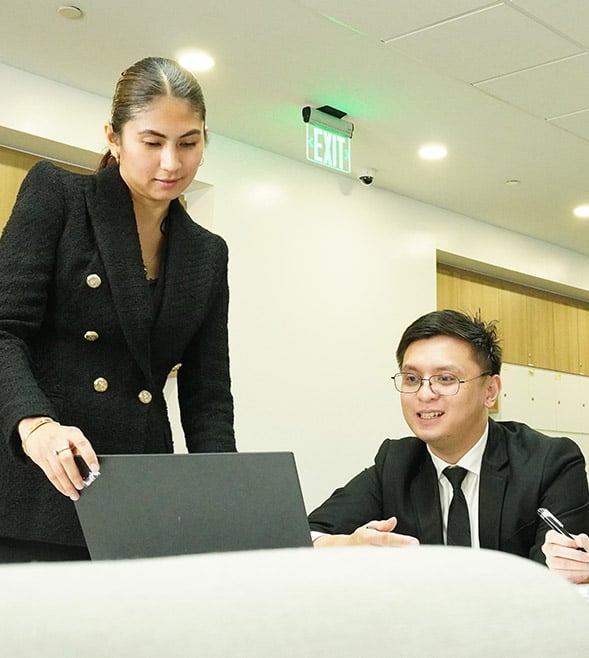As the Philippines reels from the successive landfalls of Typhoons Crising, Dante, and Emong, and the relentless southwest monsoon (Habagat), businesses across the archipelago are once again reminded of nature’s unforgiving power. Flooded warehouses, paralysed logistics, power outages, and damaged infrastructure have disrupted operations across the country. For many enterprises, the immediate priority has been survival and recovery.
Yet beneath the surface of these operational challenges lies a quieter but equally pressing concern: the transfer pricing implications of such disruptions. For multinational enterprises (MNEs) with Philippine entities, the question is no longer just how to rebuild, but how to ensure that their intercompany pricing remains defensible under the arm’s length principle in the wake of calamity.
Natural disasters like typhoons disrupt the economic assumptions underlying many intercompany pricing arrangements. In the Philippines, where entities often operate as contract manufacturers, limited-risk distributors, or limited-risk/routine service providers, transfer pricing models typically assume a stable environment. However, production halts, logistics constraints, and extraordinary costs can misalign actual conditions with intercompany agreements.
At the core of this issue is the need to re-examine how the functions, assets, and risks (FAR) assigned to various related entities have shifted. The Organization for Economic Cooperation and Development (OECD) Transfer Pricing Guidelines emphasise aligning pricing outcomes with value creation and risk assumption. A Philippine entity deemed low risk may earn routine margins under normal conditions, but when calamities damage inventory or delay shipments, it may find itself shouldering risks it was never intended to bear. Without appropriate adjustments, standard returns may no longer reflect arm’s length outcomes. From the Bureau of Internal Revenue’s (BIR) perspective, it may assess whether the losses align with the contractual and functional arrangements or whether the intercompany pricing mechanism requires adjustment to reflect economic substance.
How, then, can taxpayers maintain defensible and compliant transfer pricing in the face of such disruptions?
Reassess risk allocation across entities
Revenue Audit Memorandum Order (RAMO) No. 1-2019 reinforces the OECD’s principle that the allocation of risks within a multinational group directly influences how profits and losses are attributed among related parties. It emphasises that the entity contractually designated to bear a particular risk must be aligned with the actual conduct and economic substance of the transaction. In other words, the contractual allocation of risk must be consistent with the real-world facts and circumstances, including the functions performed, assets used, and risks actually assumed by each party.
Post-calamity, Philippine taxpayers must revisit their risk profiles to ensure economic consequences align with contractual roles, facts, and circumstances.
For example, Company A, a Philippine-based distributor under a limited-risk model, sustained flooding at its warehouse, leading to lost inventory and delivery failures. If the company also incurred customer attrition costs and higher distribution expenses, it may be assuming commercial risks inconsistent with its transfer pricing designation as a limited-risk distributor. A revised risk analysis and proper documentation can support a case for adjusting its intercompany margin accordingly.
Localised impact and documentation requirements
RAMO No. 1-2019 emphasises the importance of analysing the arm’s length nature of related party transactions, particularly when a taxpayer reports a lower net operating profit compared to other companies in the same industry. This discrepancy may signal potential transfer pricing risks that warrant further scrutiny.
It’s important to note that calamities and other external disruptions can affect regions unevenly. These localised impacts may lead to different financial outcomes among companies operating in the same industry.
For example, Company X, located in Metro Manila, experienced flood-related delays in supply chain logistics, which negatively impacted its net profit. In contrast, Company Y, a comparable entity based in Davao, operated without disruption during the same period.
Without clear documentation of such localised disruptions, the BIR may question the legitimacy of Company X’s reported losses when compared to the profitability of Company Y. To mitigate this risk, taxpayers must prepare robust justifications, contemporaneous documentation, and appropriate disclosures to demonstrate that reduced profitability is a result of genuine economic conditions rather than transfer pricing manipulation.
Evaluate and allocate extraordinary costs appropriately
Non-recurring expenses, such as repairs, re-routing, or power restoration, should not be automatically absorbed by the local entity simply because they are labelled “extraordinary.” Instead, the proper approach involves delineating the actual transaction, assessing which party assumed the risk, and evaluating whether independent enterprises under similar conditions would have shared the cost.
For example, Company Y, a contract manufacturer located in Metro Manila, had to rent generators, hire temporary workers, and repair damaged facilities following the typhoons. Although these costs were booked locally, the continued delivery of components benefited its foreign affiliate. In this case, the costs may justifiably be recharged through the intercompany arrangement, consistent with arm’s length behaviour.
This reassessment of risk is also critical when evaluating how calamity-related costs are treated under cost-plus or fully loaded cost-plus markup models. The OECD emphasises that only costs that are of an operating nature and directly or indirectly related to the controlled transaction should be included in the cost base. Costs that do not affect comparability should be excluded from net profit indicators.
If a company applies a full-cost-plus method, including extraordinary expenses in its cost base without evaluating who bears the risk, it could distort the arm’s length result. A proper functional and risk analysis should determine whether such costs should be included in the markup calculation or excluded, depending on contractual terms and economic substance.
Review and possibly revise intercompany agreements
Calamities may trigger force majeure clauses or justify the revision of intercompany agreements. Taxpayers should assess whether existing contracts still reflect the economic reality and risk-sharing arrangements. Any changes should be clearly documented and aligned with the arm’s length principle to avoid regulatory scrutiny. The BIR may closely examine such revisions, especially if they result in significant deductions or losses.
For instance, Company Z, a Philippine entity supplying parts to its parent company in Japan, faced port closures due to typhoons. The resulting delivery delays led to penalties from customers not anticipated in the original intercompany agreement. Given this development, Company Z may reasonably seek to amend the agreement to reflect a more balanced sharing of risk or adjust pricing to account for costs incurred. The OECD affirms such revisions are permissible if consistent with what unrelated parties would have done under similar circumstances.
Takeaway
The arm’s length principle does not disappear during a disaster, but it must be applied with contextual understanding. Typhoons show how economic substance can shift suddenly, challenging assumptions behind transfer pricing policies. For Philippine entities, this means recognising disruptions and responding with foresight and documentation to manage recovery and regulatory scrutiny. Such actions not only promote compliance but also demonstrates the resilience of transfer pricing policies even under calamities. A disaster-aware transfer pricing strategy is not merely reactive; it is an essential element of sustainable and defensible cross-border tax compliance in an increasingly volatile world.
Stay compliant. Stay prepared. And above all, stay safe.
Let's Talk TP is an offshoot of Let’s Talk Tax, a weekly newspaper column of P&A Grant Thornton that aims to keep the public informed of various developments in taxation. This article is not intended to be a substitute for competent professional advice.
As published in BusinessWorld, dated 29 July 2025




